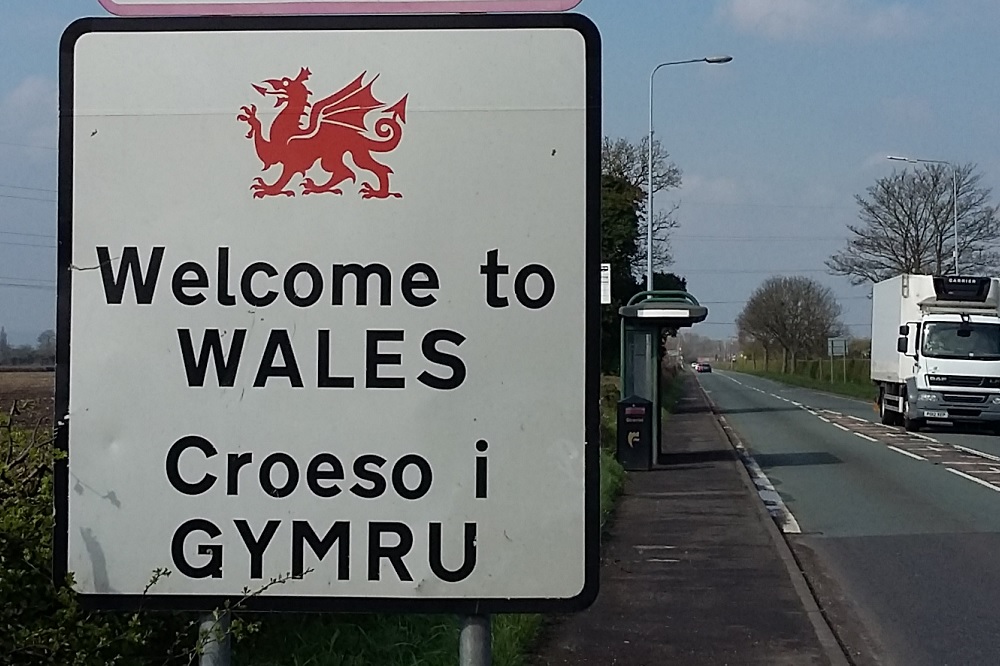How the Welsh language is being promoted to help migrants feel at home

Huw Lewis, Senior Lecturer in Politics, Aberystwyth University, Gwennan Higham, Senior Lecturer in Welsh, Swansea University, Mike Chick, Senior Lecturer in TESOL/English, University of South Wales
The UK government alone decides who can enter the country and how migration and asylum policies are made. But devolved governments have scope to use their powers in fields such as housing, education, health and social services to shape the nature of the support that is subsequently offered to new arrivals.
In recent years, the Welsh government has looked for ways to use its powers to help refugees and migrants integrate into Welsh society, taking into account the role of the Welsh language.
Overall, this is an approach that seeks to create a welcoming and supportive environment in Wales. It contrasts with the UK government’s commitment to reducing net migration and to create a “hostile environment” for refugees and asylum seekers.
The most prominent step taken to date was the publication of the Welsh government’s plan in 2019, which set out measures aimed at turning Wales into a “nation of sanctuary”.
However, another significant – but less obvious – aspect of the Welsh government’s work are the steps taken to ensure that the Welsh language plays a more prominent role in the process of welcoming migrants and refugees.
Reflecting on this work, Jane Hutt, Wales’ social justice minister, has argued that the Welsh language could become “an extremely powerful integration tool”.
Hospitality and integration
The shift to viewing the Welsh language as a resource that can facilitate integration is evident when tracing the evolution of English for speakers of other languages (ESOL) provision in Wales.
In 2013, the formal link between ESOL provision and the process of gaining UK citizenship was unpicked by the then Conservative-Liberal Democrat coalition government.
An unforeseen consequence of this reform was that it created an opportunity to initiate a distinct approach to language education for migrants in Wales. Hence, a year later, the Welsh government published its first ESOL policy for Wales. It was the first of its kind to be developed by any of the UK’s four governments.
The original ESOL policy did not make a link between the Welsh language and linguistic integration. But a later iteration, published in 2019, called on ESOL providers in Wales “to integrate the Welsh language into their classes”.
This was deemed necessary as the “the Welsh language can be a valuable skill in the workplace”. And also because learning Welsh can facilitate “social integration”, particularly in “predominantly Welsh speaking communities”.
Coinciding with this, the National Centre for Learning Welsh worked in partnership with Adult Learning Wales, the umbrella organisation for adult education providers across Wales, to develop a novel Welsh for speakers of other languages (WSOL) provision. Introduced for the first time in 2019, Croeso i Bawb (“Welcome to Everyone”) is a bespoke course that aims to introduce the Welsh language to migrants and refugees.
A Welsh government-commissioned review of ESOL provision in Wales this year reiterated the value of introducing Welsh for promoting a sense of belonging. The review also called for the National Centre for Learning Welsh to be integrated fully into existing educational networks that work to support migrants in Wales.
Implications
It is important not to overstate the scale of these changes. Overall, English remains the primary medium of integration for the majority of immigrants and refugees settling in Wales.
Yet the increasing emphasis on the Welsh language in integration efforts reinforces the sense of a distinctive Welsh approach to welcoming migrants and refugees. The new WSOL provision challenges the monolingual image of life in the UK and promotes multilingualism and multiculturalism.
Other research suggests that learning Welsh can enhance the employment opportunities of migrants and refugees. It can also facilitate their ability to access a variety of new social networks.
But if there is to be a serious effort to offer a route to integration, it will not be sufficient to merely focus on offering formal opportunities to learn the Welsh language, important as that may be.
Policymakers and activists should consider other ways to make Welsh language learning more accessible. Providing opportunities for learners to interact socially through the medium of Welsh is also vital.
While the UK government seems set to continue emphasising English as the only way to integrate successfully, the current evidence suggests that Wales wants a different, more multilingual vision.
This article was first published on The Conversation
![]()
Support our Nation today
For the price of a cup of coffee a month you can help us create an independent, not-for-profit, national news service for the people of Wales, by the people of Wales.





